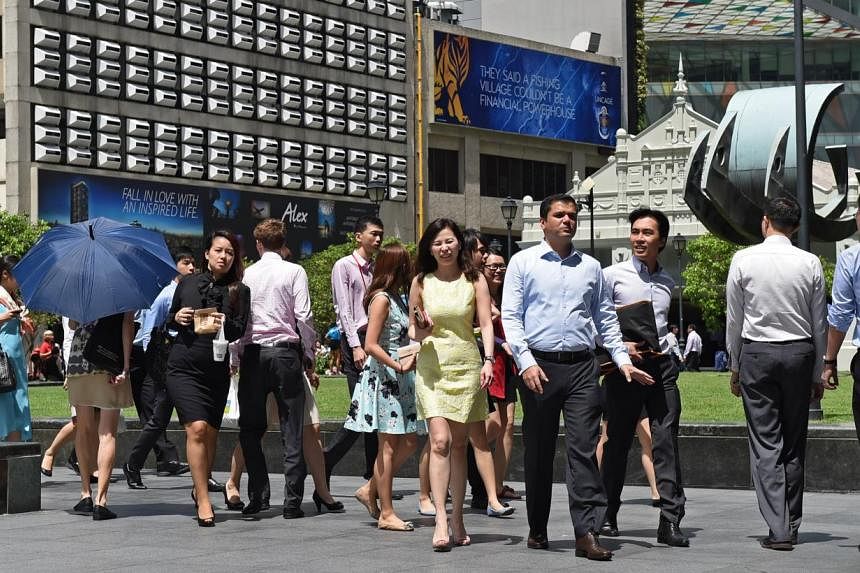Singaporeans have been known through surveys to be among the unhappiest employees in the Asia-Pacific. Apart from the pressures of everyday living, economic factors and workplace dissatisfaction seem instrumental to this undesirable state of affairs.
But it may also be the case that an improvement at the workplace in terms of workers having a stake and say in their businesses can provide an environment that produces greater meaning for the labour force in its daily grind. So, can attempts at economic reform be enough to secure happiness, or are economics and happiness mutually exclusive?
Various political parties have called for a minimum wage, the rise of small and medium-sized enterprises (SMEs) and retrenchment benefits. There are also calls for a stronger or militant trade union; but while that may sound right, we must be careful to avoid a situation of regular conflict between workers and corporatists.
What is needed is a paradigm and power shift. Economic organisational platforms from the left can provide this, as prominent Marxian economist Richard Wolff advocates with the implementation of Workers' Self-Directed Enterprises.
Such enterprises would involve worker ownership of the enterprise and worker-driven decisions on what to do with earnings. The board of directors is also elected by the employees. This ensures not only that the staff set their own salaries, but those of management. There is no need for a national minimum wage. There are worker consolidated funds for reinvestment and forms of profit sharing. This is autonomy and democratic practices at work.
There are precedents for such productive and successful enterprises, such as Spain's half-century old Mondragon Cooperative. It has over 70,000 members and more than 250 companies and cooperatives. It has interests in finance, industry, retail and research, with offices and production plants worldwide.
Another example is the self-sustaining employee owned enterprises in the Italian province of Emilia-Romagna, where almost two in three of its 4.5 million people are members of a cooperative. It is not only one of the most economically productive regions in Europe but among the most cooperative regions in the world. Although better known as the place where Ferrari and Lamborghini cars are made, the cooperatives more humbly but successfully deliver manufacturing, retail and social services rather than luxury items. They operate in tandem with regular SMEs as well as those that may reflect the profit-sharing ethic within the marketplace. Hence, this is not a replacement for the capitalist mode of production, but a form of economic biodiversity.Worker-owned enterprises that promote genuine empowerment, accountability and democratic processes at the workplace where many spend many of their waking hours. And there are indications of high levels of happiness, satisfaction and productivity at such workplaces.
What does this mean for Singapore? We, too, have our cooperatives but still rely on traditional modes of business and investment. Would increasing the existence of cooperatives in Singapore be the "gestalt switch" to initiate an economic paradigm shift?
But merely trying to transplant more of the self-determining mechanisms and operations of the Mondragon and Emilia-Romagna system here will not work.
The lesson from these regions is their ethos. What is required is a paradigm shift in our socio-economic consciousness that can evolve towards greater sharing, reciprocity, mutual respect and empathy for differences and differing views, and the willingness to pull together in good and bad times.
It requires a shift in mindset where cooperation and collaboration between PMETs (professionals, managers, executives and technicians), workers and the government can provide not just healthy growth but equity that gives a sense of ownership to the common man. A mindset change is crucial to transforming the economic system into one that gives satisfaction and meaning. Like many things, achieving happiness is something that must be worked towards.
To what extent is Singapore ready for this?
The writer worked in the Singapore navy and media and is the editor of Philosophers For Change, an online journal on alternative socioeconomic paradigms.

